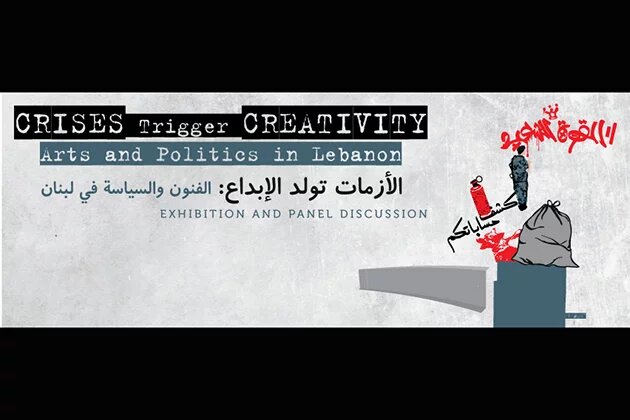
Over the past few years, there has been an increase in censorship practiced against a number of performers, artists, filmmakers, etc. There has been an unprecedented wave of censorship, with regards to Lebanese artists who have sprayed images or wrote slogans against the Lebanese Army and the Security Forces. Furthermore, a number of artists were sent to court because of their graffiti that targeted a number of political leaders.
With the development of the Arab Spring across the neighboring Arab nations, such as in Syria and Egypt, and with the inescapable consequences and repercussions on the Lebanese political scene, a new wave of protests against the Lebanese politicians has arisen, particularly following the government’s failure to resolve the mounting garbage crisis.
One of the most interesting aspects of these demonstrations is the involvement of numerous Lebanese artists who are using the protests as a space to address their political views. For this purpose, they use different kinds of artistic expressions, such as music, paintings, graffiti etc. in order to convey messages to a larger public and to attract a bigger number of protestors and activists. Although some artists may well partake in such activity for purely artistic reasons, it is undeniable that most of them are politically active and supportive of the protests taking place.
Recently, and during the protests that took place in Riad El Solh against the garbage crisis, the political elite being protested against constructed a wall, topped with barbed-wire, in order to safeguard the police forces and the prime minister’s office against the ‘peaceful” demonstrations! Activists and journalists reported that, within hours, the new “Beirut Wall” was covered in antigovernment graffiti and provided a focal point for protesters who rallied after dark to denounce the way the country was being run.
With the growing number of Lebanese artists addressing political issues, a panel had to be organized to tackle a set of questions, to mention but a few: have artists started to express political anger through graffiti, songs, performances and poetry? Has this form of expression become a mean of disseminating political messages or imposing political demands? How is the whole situation being perceived by the public? Are the demonstrations being positively impacted by this artistic activity or is this activity merely transient and intended to give a few individuals their moment of fame as artists?






























